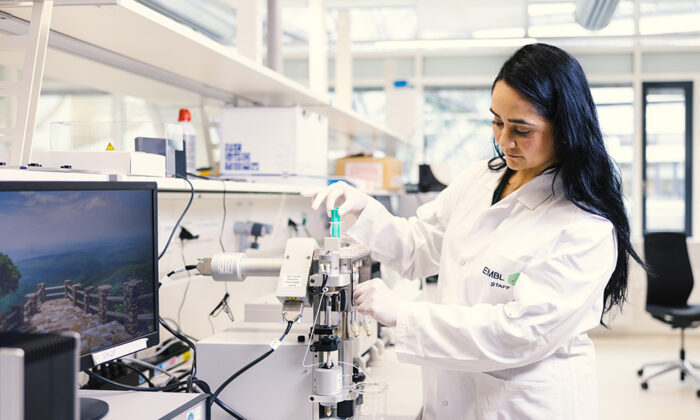Table of Contents
In recent years, technology has become an indispensable ally in healthcare, transforming how we approach medical treatment and patient care. From streamlining administrative tasks to revolutionizing diagnosis and treatment methods, the impact of technology on the health sector has been profound.
In this article, we’ll explore seven methods through which technology has positively influenced the healthcare industry, paving the way for better patient outcomes and enhanced efficiency.
Electronic Health Records (EHR):
The transition from paper-based medical records to Electronic Health Records (EHR) is a cornerstone of modern healthcare. EHR systems digitize patient information and offer a multifaceted approach to data management, including patient history, diagnoses, medications, allergies, immunization dates, radiology images, and laboratory test results.
Such comprehensive documentation not only minimizes errors stemming from illegible handwriting or misplaced files but also streamlines information retrieval, enabling healthcare providers to make informed decisions promptly.
Furthermore, EHR systems facilitate seamless communication and collaboration among different healthcare entities, ensuring continuity of care across various medical settings. Interoperability between EHR platforms enables the exchange of patient data securely, promoting coordinated care and reducing redundant procedures or tests.
Moreover, the integration of decision support tools within EHR systems aids clinicians in clinical decision-making, leading to more accurate diagnoses and personalized treatment plans.
Telemedicine:
Telemedicine, propelled by advancements in telecommunications and digital health technologies, has revolutionized healthcare delivery, particularly in remote or underserved regions. Through real-time audio and video communication platforms, patients can consult with healthcare professionals from virtually anywhere, eliminating geographical barriers to access.
Telemedicine encompasses a spectrum of services, ranging from virtual consultations and remote monitoring to telesurgery and telerehabilitation, catering to diverse medical needs and specialties.
The COVID-19 pandemic catalyzed the widespread adoption of telemedicine, prompting healthcare providers to embrace virtual care models to mitigate the risk of viral transmission and ensure continuity of services.
Beyond the pandemic, telemedicine continues to offer numerous benefits, including reduced healthcare costs, enhanced patient convenience, and improved adherence to treatment plans. Additionally, telemedicine empowers patients to participate in their healthcare journey actively, fostering a collaborative patient-provider relationship centered on communication and engagement.
Medical Imaging Technology:
The evolution of medical imaging technology has revolutionized diagnostic capabilities, enabling healthcare professionals to visualize internal anatomical structures and detect pathological changes with unprecedented precision.
Modalities such as Magnetic Resonance Imaging (MRI), Computed Tomography (CT), Positron Emission Tomography (PET), and ultrasound have become indispensable tools in clinical practice, facilitating early detection, accurate diagnosis, and personalized treatment planning across various medical disciplines.
Advancements in imaging modalities, coupled with innovations in image processing algorithms and three-dimensional reconstruction techniques, have expanded the diagnostic utility of medical imaging. From detecting minute lesions and assessing disease progression to guiding minimally invasive interventions, medical imaging plays a pivotal role in optimizing patient care and therapeutic outcomes.
The outlook of a health information management degree appears increasingly promising, offering exciting opportunities for aspiring healthcare professionals to make a positive difference in the lives of patients.
Wearable Health Devices:
The proliferation of wearable health devices, encompassing fitness trackers, smartwatches, biosensors, and mobile health applications, has empowered individuals to monitor and manage their health proactively.
These wearable technologies leverage sensors to capture physiological parameters, such as heart rate, blood pressure, blood glucose levels, oxygen saturation, and physical activity, in real-time, providing users with actionable insights into their health status and lifestyle behaviors.
By facilitating continuous health monitoring, wearable devices enable early detection of deviations from baseline health parameters, facilitating timely intervention and disease management.
Moreover, the gamification elements incorporated into many wearable health applications incentivize users to adopt healthier behaviors, such as regular exercise, proper nutrition, adequate sleep, and stress management, thereby promoting preventive healthcare and reducing the risk of chronic diseases.
Health Information Exchange (HIE):
Health Information Exchange (HIE) platforms serve as conduits for the seamless and secure exchange of patient information among disparate healthcare organizations, fostering interoperability and care coordination. HIE initiatives aim to overcome the nature of healthcare data by facilitating the electronic sharing of patient records, clinical notes, diagnostic reports, and medication histories across healthcare networks and care settings.
By promoting data liquidity and interoperability, HIE initiatives enhance care continuity, clinical decision-making, and patient safety. Healthcare providers gain access to comprehensive patient information in real-time, enabling them to make informed decisions and avoid redundant tests or procedures.
Additionally, HIE fosters collaboration among healthcare stakeholders, including hospitals, physician practices, laboratories, pharmacies, and public health agencies, thereby improving care quality, efficiency, and population health outcomes.
Artificial Intelligence (AI) in Healthcare:
Artificial Intelligence (AI) has emerged as a game-changer in the field of healthcare, offering unprecedented capabilities in data analysis, diagnosis, and personalized treatment planning. Machine learning algorithms can sift through vast amounts of medical data ranging from electronic health records and medical images to genomic sequences and wearable sensor data to identify patterns and trends that human clinicians might overlook.
In the realm of diagnostics, AI-powered algorithms demonstrate remarkable accuracy and efficiency in interpreting medical images, detecting abnormalities, and predicting disease trajectories. Furthermore, AI-driven clinical decision support systems leverage patient-specific data to recommend personalized treatment plans, optimize medication regimens, and predict patient outcomes.
The integration of AI in healthcare not only enhances diagnostic accuracy and treatment efficacy but also augments operational efficiency, resource allocation, and healthcare delivery models.
Remote Patient Monitoring:
Remote patient monitoring (RPM) encompasses a spectrum of technologies, including wearable sensors, mobile health applications, and telemonitoring devices, designed to track and transmit patient-generated health data from remote locations to healthcare providers.
RPM enables continuous surveillance of vital signs, symptoms, medication adherence, and disease progression outside traditional clinical settings, offering a proactive approach to patient care and chronic disease management.
By leveraging RPM technologies, healthcare providers can remotely monitor patients with chronic conditions, such as diabetes, hypertension, heart failure, and chronic obstructive pulmonary disease (COPD), in real-time, enabling early intervention and preventing disease exacerbations.
Moreover, RPM facilitates post-acute care management and transitions, enabling healthcare teams to monitor patients’ recovery progress and adherence to treatment plans following hospital discharge or surgical procedures.
Blockchain in Healthcare:
Blockchain technology, best known for its association with cryptocurrencies like Bitcoin, is increasingly finding applications in healthcare. At its core, blockchain is a decentralized, distributed ledger system that records transactions across multiple computers in such a way that the registered transactions cannot be altered retroactively.
In healthcare, blockchain holds promise in addressing several critical challenges, including data security, interoperability, and patient privacy. One of the primary applications of blockchain in healthcare is in the realm of medical data management and security.
By leveraging blockchain’s cryptographic algorithms and decentralized architecture, healthcare organizations can enhance the security and integrity of patient health information, mitigating the risk of data breaches, unauthorized access, and tampering. Additionally, blockchain enables patients to maintain control over their health data, granting them greater autonomy and transparency in sharing their medical records with healthcare providers or researchers.
Conclusion:
In conclusion, technology has fundamentally transformed healthcare delivery and patient care. From Electronic Health Records (EHR) to telemedicine, medical imaging, wearable devices, Health Information Exchange (HIE), Artificial Intelligence (AI), and remote patient monitoring (RPM), these innovations have streamlined workflows, enhanced diagnostics, personalized treatments, and empowered patients.
As healthcare evolves, embracing technology will remain crucial for fostering innovation, improving outcomes, and advancing global population health.










1 comment
I appreciate this insightful discussion on the role of technology in modern healthcare. The article effectively showcases how innovations like medical imaging, remote patient monitoring, and blockchain are enhancing diagnostic accuracy and patient engagement. However, as highlighted, the integration of these technologies requires careful consideration of data privacy and system interoperability. Moving forward, it’s crucial to evaluate the long-term impacts of these technologies on healthcare delivery and patient outcomes.